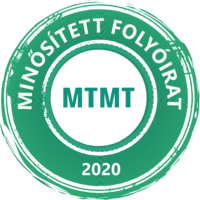Developmental Cycles of a Family Business in the Catering Industry
Case Study
DOI:
https://doi.org/10.14232/analecta.2016.2.16-22Abstract
Small and medium-sized enterprises became relevant actors of the economy due not only to their role in the employment but also in producing GDP and export products. Within the sector, family enterprises constitute ¾ of the enterprises in Europe, their significance is therefore decisive. In our publication, we present the career path of SoReCa Ltd., family enterprise acting in the catering industry. Having operated for 10 years, the company’s portfolio covers child nutrition, company canteens as well as event catering. In our research, we used the corporate lifecycle model of Adizes which was supplemented by corporate medical records, as a useful practical tool. By these medical records, we may explore SoReCa lifecycle stages, their main features, and the signs of crisis, evolution or revolution. These analyses may help the management in the decision process and may form successful management tools in establishing new strategy if needed. We show that among management roles - integrator role - is the key role of organizations in Prime ages.
Downloads
Downloads
Published
How to Cite
Issue
Section
License
Copyright (C) 2024 Authors
This work is licensed under a Creative Commons Attribution 4.0 International License.













